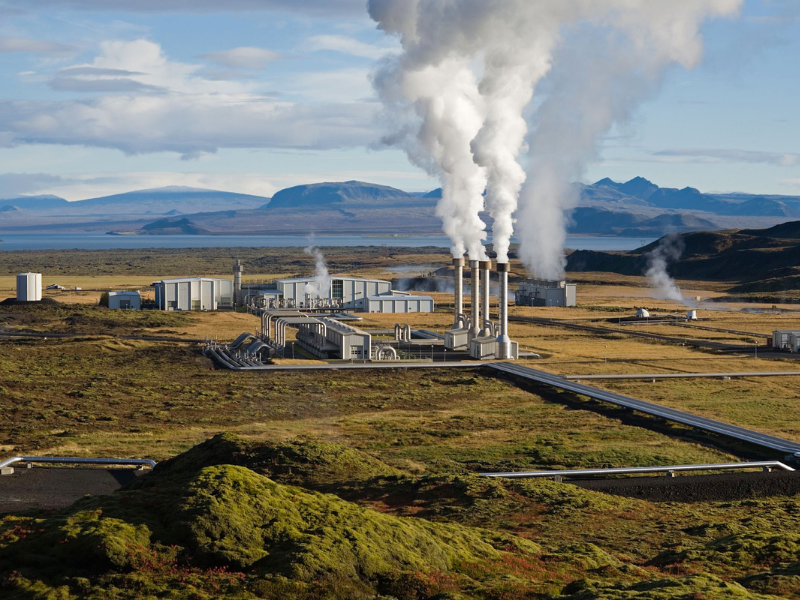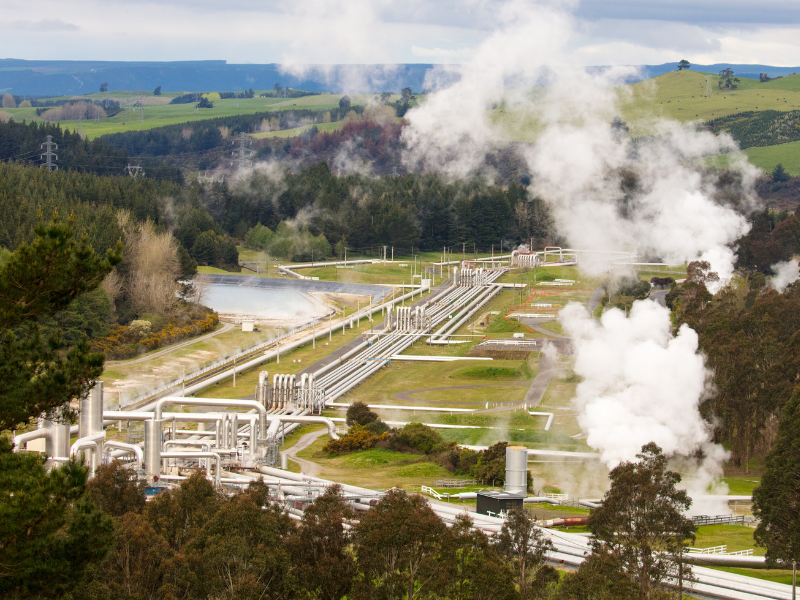Introduction
In recent years, as concerns about climate change have grown, the demand for clean and renewable sources of energy has skyrocketed. Among the various alternatives, geothermal energy has emerged as a promising solution. Geothermal energy companies are at the forefront of harnessing this sustainable and abundant source of power. This article will delve into the world of geothermal energy companies, exploring their operations, benefits, challenges, and future prospects.
What is Geothermal Energy?

Before diving into the specifics of geothermal energy companies, it is crucial to understand the concept of geothermal energy. Geothermal energy refers to the heat that is stored beneath the Earth’s surface. This heat can be harnessed and used to generate electricity or provide direct heating and cooling for residential and industrial purposes. It is a clean and renewable energy source that is available 24/7, making it a reliable option for meeting energy needs.
How Geothermal Energy Companies Operate?
Geothermal energy companies are responsible for extracting and converting geothermal heat into usable energy. The process involves drilling wells to access the hot water and steam reservoirs found deep underground. This hot water and steam are then brought to the surface and used to spin turbines, which generate electricity. In addition, geothermal energy companies also utilize heat pumps to directly heat and cool buildings by tapping into the stable temperature of the Earth.
Benefits of Geothermal Energy Companies

Geothermal energy companies offer numerous advantages over traditional fossil fuel-based energy sources. Some of the key benefits include:
- Renewable and Sustainable: Geothermal energy is derived from the Earth’s internal heat, which is constantly replenished. This means that geothermal energy companies can produce electricity and heat without depleting natural resources or contributing to greenhouse gas emissions.
- Continuous Power Generation: Unlike solar and wind energy, geothermal energy is not dependent on weather conditions. Geothermal power plants can operate 24/7, providing a consistent and reliable source of electricity.
- Reduced Operating Costs: Geothermal energy companies benefit from lower operating costs compared to fossil fuel-based power plants. The fuel used, heat from the Earth, is essentially free, resulting in significant savings.
- Long Lifespan: Geothermal power plants have a long lifespan, typically lasting over 30 years. This longevity ensures a stable and predictable energy source for decades to come.
- Job Creation: Geothermal energy companies create jobs in various sectors, including exploration, drilling, engineering, and plant operation. These jobs contribute to economic growth and energy security.
Geothermal Energy Companies vs Other Renewable Energy Sources
While geothermal energy is often overshadowed by solar and wind power, it offers unique advantages that set it apart from other renewable energy sources. Some of the key differentiators include:
- Reliability: Solar and wind energy generation depend on weather conditions, which can be unpredictable. Geothermal energy companies, on the other hand, have a consistent and reliable source of heat, ensuring continuous power generation.
- Land Use: Unlike solar and wind farms, geothermal power plants require a smaller land footprint to generate the same amount of electricity. This makes geothermal energy more suitable for areas with limited available land.
- Energy Density: Geothermal energy is highly concentrated, allowing for efficient power generation. Solar and wind energy, in contrast, require larger installations to generate comparable levels of electricity.
Challenges Faced by Geothermal Energy Companies

While geothermal energy companies have several advantages, they also face unique challenges that hinder their widespread adoption. Some of the major challenges include:
- Resource Location: Geothermal energy resources are not evenly distributed globally. To harness geothermal energy, companies must identify suitable locations with accessible hot water and steam reservoirs, which can be a costly and time-consuming process.
- High Initial Costs: Geothermal power plants require substantial upfront investments for drilling and infrastructure development. This financial burden can deter potential investors and hinder the growth of geothermal energy companies.
- Technological Limitations: Drilling deep wells and managing geothermal reservoirs pose technical challenges. Companies must invest in research and development to improve drilling techniques and increase the efficiency of power generation.
Major Players in the Geothermal Energy Industry
The geothermal energy industry is composed of several key players driving innovation and development in the sector. Some of the major companies include:
- Ormat Technologies: Ormat Technologies is a global leader in geothermal energy, providing solutions for power generation and direct use applications. They have a significant presence in countries such as the United States, Kenya, and Indonesia.
- Enel Green Power: Enel Green Power is a renewable energy company that has a strong focus on geothermal power. They have geothermal operations in Italy, Chile, the United States, and Central America.
- Calpine Corporation: Calpine Corporation is the largest geothermal energy producer in the United States. They have geothermal power plants in California, Nevada, and Oregon.
Geothermal Energy Companies and Sustainable Development

Geothermal energy companies play a pivotal role in advancing sustainable development goals. By utilizing geothermal energy, they contribute to the reduction of greenhouse gas emissions, increased energy security, and job creation. Geothermal power plants also have a smaller environmental footprint compared to fossil fuel-based power plants, minimizing the impact on ecosystems.
Geothermal Energy Projects Across the Globe
Geothermal energy companies are involved in various projects around the world, tapping into the potential of geothermal resources. Some notable projects include:
- The Hellisheiði Power Station in Iceland: This power plant is one of the largest geothermal power stations in the world, supplying electricity and hot water to the capital city of Reykjavik.
- The Olkaria Geothermal Complex in Kenya: Kenya has embraced geothermal energy and has several projects in the Rift Valley region. The Olkaria Geothermal Complex is one of the largest geothermal facilities in Africa, providing clean and reliable electricity.
- The Geysers in California, United States: The Geysers is the largest geothermal field in the world. It has numerous geothermal power plants that harness the underground heat to generate electricity for Northern California.
Geothermal Energy Companies and Job Creation
Geothermal energy companies have a significant impact on job creation, both directly and indirectly. Directly, companies require skilled professionals in fields like geology, engineering, and plant operations. Indirectly, the growth of the geothermal energy sector stimulates the local economy by creating jobs in supporting industries such as construction, transportation, and tourism.
Geothermal Energy Companies and Local Economy
Geothermal energy companies have the potential to positively impact local economies. As they establish operations, they contribute taxes and royalties, which can be used for infrastructure development and public services. Additionally, the presence of geothermal power plants can attract tourism and investment, providing a boost to the local economy.
Geothermal Energy Companies and Environmental Impact
Geothermal energy companies have a relatively low environmental impact compared to fossil fuel-based energy sources. The emissions from geothermal power plants are significantly lower, and they do not produce any air pollution or greenhouse gas emissions during operation. However, geothermal projects do have potential environmental risks, such as the release of trace gases and the disposal of geothermal fluids. Proper management and monitoring are crucial to ensure minimal environmental impact.
Innovations in Geothermal Energy Companies
Geothermal energy companies are continuously innovating to improve efficiency, reduce costs, and expand the potential of geothermal energy. Some notable innovations include:
- Binary Cycle Power Plants: Binary cycle power plants allow for the extraction of heat from lower temperature geothermal resources. This technology expands the range of viable geothermal sites, increasing the utilization of geothermal energy.
- Enhanced Geothermal Systems (EGS): EGS involves the creation of artificial geothermal reservoirs by injecting water into hot rock formations. This technology has the potential to unlock geothermal energy sources in regions previously deemed unsuitable.
Future Prospects of Geothermal Energy Companies
The future looks promising for geothermal energy companies as the world shifts towards cleaner and more sustainable sources of energy. With advancements in technology and increased awareness of climate change, geothermal energy is poised to play a significant role in the global energy mix. As geothermal resources are more extensively explored and developed, geothermal energy companies have the potential to become major players in the renewable energy sector.
Conclusion
Geothermal energy companies are vital in unlocking the potential of geothermal energy and providing a clean and sustainable source of power. With their innovative approaches, geothermal energy companies are overcoming challenges and shaping the future of the renewable energy industry. As the world embraces the need for environmentally friendly solutions, geothermal energy companies have a promising role in the transition towards a greener and more sustainable future.

